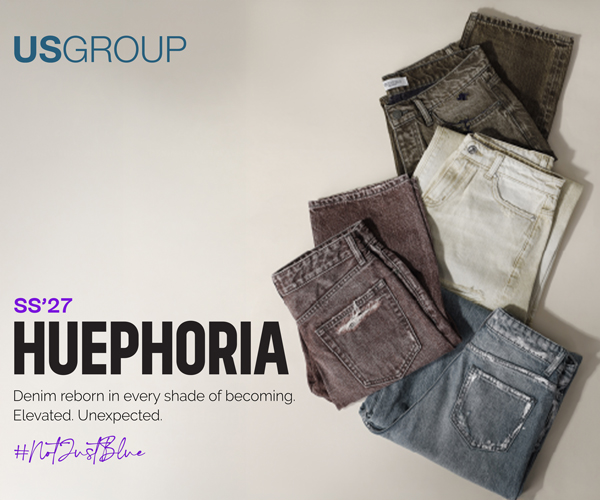Full throttle

The speed, the adrenaline rush… Thanks to innovation in denim, the biker dream of experiencing the roar of a full-throttle engine wearing a cool-looking pair of jeans is now possible. This is what Mentor’s highly skilled team in Istanbul excels at: making motorcycle denim that looks like real denim.
From Marlon Brando to Peter Fonda, jeans have always been associated with cool motorcycle heroes. The rebel-at-heart biker clad in washed-out and worn-in jeans is an undisputed iconic image. But while early riders wearing basic cotton jeans may have looked damn cool, they exposed their bodies to serious damage in the event of an accident. Today’s biker heroes can take to the road safely protected by fit-for-purpose technical denim fabrics and jeans manufacturing.
You may have noticed that your local motorcycle shop now offers a wider range of specialised garments, including many technical jeans. You might think this is just another niche market, but my experience working in the pioneering days of the skate and surf wear industry tells me that its potential to become an important segment of the denim market is just around the corner.
The jeans sold by motorcycle retailers are often the result of a compromise between look and function. Function in this case is synonymous with true protection, and it naturally takes precedence over style and aesthetics.
But this is changing, and it is now possible to offer both serious abrasion protection and a proper denim look (read: matte cotton look). Thanks to innovators such as Pierre-Henry Servajean, the creator of Armalith with Royotec, and innovative fabrics made from Dyneema, Kevlar or Cordura, cool motorcycle denim washes, looks and finishes can now be achieved. And this is how brands, such as AlpineStar, BMW, Furygan, Ixon and Bolid’ster, are introducing a new breed of jeans to the market.
A new breed of jeans
The fabrics offering suitable protection are available, but to achieve the right look, they need the special touch of true denim experts. Let me introduce you to my Turkish friends and their fantastic washing facility.
In the early 2000s, Ayhan Canlioglu and his partners founded Canlioglu Tekstil. It quickly became recognised as an innovative, reliable and responsible denim garment manufacturer. Its facilities, located in Istanbul, have grown to 15,000 square metres and more than 300 employees. The sustainability-driven factory works for leading European denim brands and carries GOTS, GRS, OCS and RCS certifications.
All well and good, but not my point. Maruf Canlioglu, Ayhan’s son, who grew up in the denim industry, has followed in his father’s footsteps and introduced a fresh and relevant idea.
Let’s first zoom out on the bigger picture. Textiles, fashion and denim are global industries that are sensitive to geopolitical trends. A change in tariffs or inflation can turn an ideal apparel sourcing destination into a nightmare overnight. This is why buyers travel the world to find better prices, better services, all at the same quality. But in denim, quality alone is not enough, you also need to have a precise feel for washes, laundering techniques, manufacturing methods, assembly, and simple, down-to-earth denim know-how. Sometimes it is not worth changing factory just for the sake of price.
Maruf Canlioglu’s idea was to increase the relevance of Istanbul in the world of denim and capitalise on a strong existing know-how in jeans making. He was tasked with setting up a new technical unit within the Cianlioglu company. It was to be a performance-oriented division specialising in mostly denim equestrian, hiking, climbing, work and motorcycle clothing. This meant developing true technical skills and competence in making functional apparel. The design stage may well start with a denim fabric, but it goes far beyond adding a mesh panel or a fancy yoke design to a basic garment.
Specific standards
To manufacture motorcycle clothing, a company must meet the requirements of international certifications, understand how to make mandatory safety stitching, and know what treatments are allowed, or not, on technical denim fabrics. It also needs to master the various protective inserts, along with the fine points of multi- or mono-layer denims. Finally, it must set up the logistics for the many trimmings, ingredient labels, and even consumer leaflets that typically accompany these functional jeans.
Mentor has fully acquired these skills and its clients include such household names as Audi, BMW and Triumph.
As a designer, I had the opportunity to work with Maruf and his team late last year to develop a highly technical and stylish mono-layer motorcycle denim range for a famous motorcycle brand that cannot yet be named. What struck me most on site at Mentor, apart from the skilled team, was its extensive washing expertise. If you have ever tried to make functional jeans from high-tech denim fabrics, you will know how difficult it is to achieve a stylish wash.
Mentor uses Canlioglu’s high-tech and low impact laundry, but if for some reason, in the middle of a development session, you feel stuck and want to try out a bit of this, or a bit of that, it can call on other partner laundries to achieve that subtle and elusive final touch. Within hours. Incredibly satisfying and a real pleasure.
In a perfect world, Maruf tells me, his next step would be to build a stand-alone facility for Mentor and take the lead in functional denim made in Turkey. After my wonderful experience in Istanbul last autumn, I sincerely wish him all the best – he deserves it.
A view of the fully eco-certified laundry at Canlioglu in Istanbul.
Photo credit: Tilmann Wröbel













